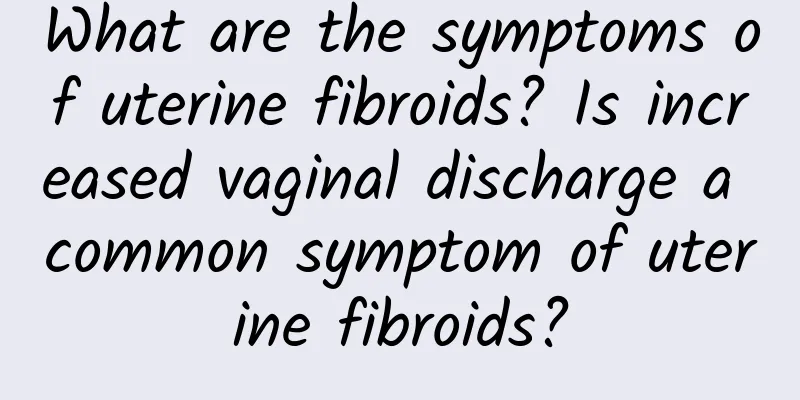How to treat pelvic effusion during pregnancy

|
The treatment of pelvic effusion during pregnancy should be determined based on the nature of the effusion and the specific cause, while taking into account the safety of the pregnant woman and the fetus. General treatment methods include symptomatic observation, drug treatment, and etiological treatment when necessary. If abnormalities are found, seek medical attention in a timely manner to ensure the health of the mother and baby. 1) Causes and observation methods of effusion During pregnancy, pelvic effusion may be caused by physiological or pathological factors. Physiological effusion usually has no special symptoms and can be absorbed by itself as the pregnancy progresses. The main causes are related to changes in progesterone and pelvic congestion. Usually no special treatment is required, and only regular check-ups are required to understand changes in the effusion. However, if the amount of effusion is large or accompanied by discomfort symptoms such as pain and fever, it may indicate pathological problems such as infection, and medical treatment is required to determine the cause. 2) Necessity and safety of drug treatment If the effusion is caused by pathological factors, such as pelvic inflammatory disease, bacterial or viral infection, safe antibiotics should be selected under the guidance of a doctor, and the safety of the fetus should be fully assessed when using the medicine. For example, commonly used cephalosporins are relatively safe, and antifungal drugs such as nystatin can be used with caution after determining the type of infection. During the use of the drug, the condition of the pregnant woman and the fetus needs to be closely monitored to avoid potential side effects. 3) Etiological treatment and health adjustment suggestions If pelvic effusion is related to other diseases, such as corpus luteum rupture, ovarian cysts, etc., treatment should give priority to the cause. Sometimes surgery or puncture to aspirate the effusion can relieve symptoms, but it depends on the gestational age and the specific condition. Increasing reasonable exercise and a balanced diet in daily life can also help enhance immunity and reduce the risk of infection. Depending on the situation, consuming foods rich in vitamin C and anti-inflammatory ingredients, such as oranges, lemons and green vegetables, can play a supporting role. The treatment of pelvic effusion during pregnancy should be carried out under the evaluation and guidance of a doctor. Do not use medication at will or ignore the development of the disease. Regular prenatal check-ups and active cooperation with doctors are the key to protecting the health of mother and baby. If any abnormality is found, seek medical attention as soon as possible to avoid delaying the disease. Through scientific treatment and reasonable treatment, in most cases, it can be recovered smoothly without affecting pregnancy and fetal development. |
<<: How to tell the difference between irritable bowel syndrome and pelvic inflammatory disease?
>>: What to eat after chemotherapy for invasive hydatidiform mole to recover quickly
Recommend
Can I take Shaofu Zhuyu Granules if I have menstrual disorders? What causes menstrual disorders?
Irregular menstruation is a common symptom. Menst...
What preparations should be made before abortion surgery?
What preparations should be made before an aborti...
Loving to eat sweets not only makes you fat, it also hurts your heart! Nutritionist You Weiming: 2 tips to avoid sugar harm
When the weather is hot, many people like to sip ...
What women need to know about menopause
Menopause is a rather complex physiological proce...
Can I still get pregnant normally after conservative treatment of ectopic pregnancy?
After conservative treatment of ectopic pregnancy...
Xiao Shushen fainted after skipping lunch, doctor says: Over-dieting
Artist Hsiao Shu-shen, who was once imprisoned fo...
Doctors explain the dangers of threatened abortion
Pregnancy is the most important event in a woman&...
What are the causes of dysmenorrhea?
What are the causes of dysmenorrhea? Dysmenorrhea...
Is it normal to have menopause at the age of 39? Do I need to adjust it again?
Menopause at the age of 39 is usually an abnormal...
Ke Nianxuan gained 10 kg after taking medication for hyperthyroidism
Young women are more prone to hyperthyroidism. Fe...
How much does dysmenorrhea surgery cost for women?
How much does it cost for female dysmenorrhea sur...
What causes female cervical erosion? 4 reasons that can easily cause female cervical erosion
In life, unmarried women of childbearing age shou...
Combining meat and vegetables to prevent and treat functional uterine bleeding
Functional uterine bleeding may occur in any woma...
Do you know any symptoms of irregular menstruation in women?
What are the symptoms of irregular menstruation i...
Reduced menstrual volume, beware of premature ovarian failure. What should you eat if your menstrual volume decreases?
The ovaries are a great magic weapon for women. O...









